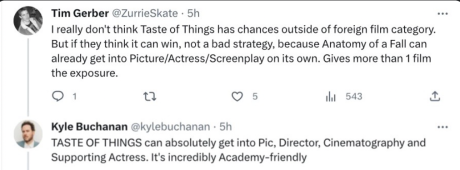House speaker Kevin McCarthy is “a supernova of incandescent cynicism…he is MAGA’s greatest handmaiden…an absolutely corrupted individual…he has no conviction, he has no core, he holds no principles, he has no fidelity to the country…he has desecrated his oath of office.” — Steve Schmidt (“Why Kevin McCarthy’s government shutdown is in service of Donald Trump’s reelection“).
Daily
Bogart’s Little Steel Balls
William Freidkin’s The Caine Mutiny Court Martial begins streaming on Paramount + / Showtime between 10.6 and 10.8. Boomers and GenXers will be watching but not many under-45s, I suspect. Am I wrong?
A great many people took notice when Edward Dmytryk‘s The Caine Mutiny opened exclusively at Loew’s Capitol (B’way between 50th and 51st, directly across from the still-in-existence Winter Garden) on Friday, 6.25.54.
It was a much bigger deal to see Dmytryk’s Technicolor WW2-era film inside the cavernous Capitol (a deluxe 5000-seater where the Oscar-winning From Here to Eternity had premiered ten months earlier) than it will be for older viewers to flop on the couch and “watch” Freidkin’s film, paying sporadic attention while surfing-and-texting, feeding the pets, taking out the garbage, etc.
The Caine Mutiny’s biggest first-run competitor was Demetrius and the Gladiators, which had opened a week or so earlier at the nearby Roxy (153 West 50th, corner of 7th Avenue).
Roughly a month later Elia Kazan‘s On The Waterfront — a gritty, black-and-white, working-class drama set in wintry, down-at-the-heels Hoboken — would open at Loews Astor (1141 seats) on Wednesday, 7.28.54.
Jean Negulesco‘s Three Coins in the Fountain, a schmaltzy Rome travelogue romance, had opened on 5.20.54.
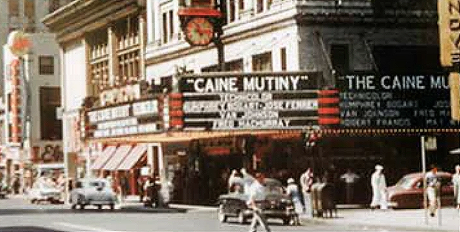
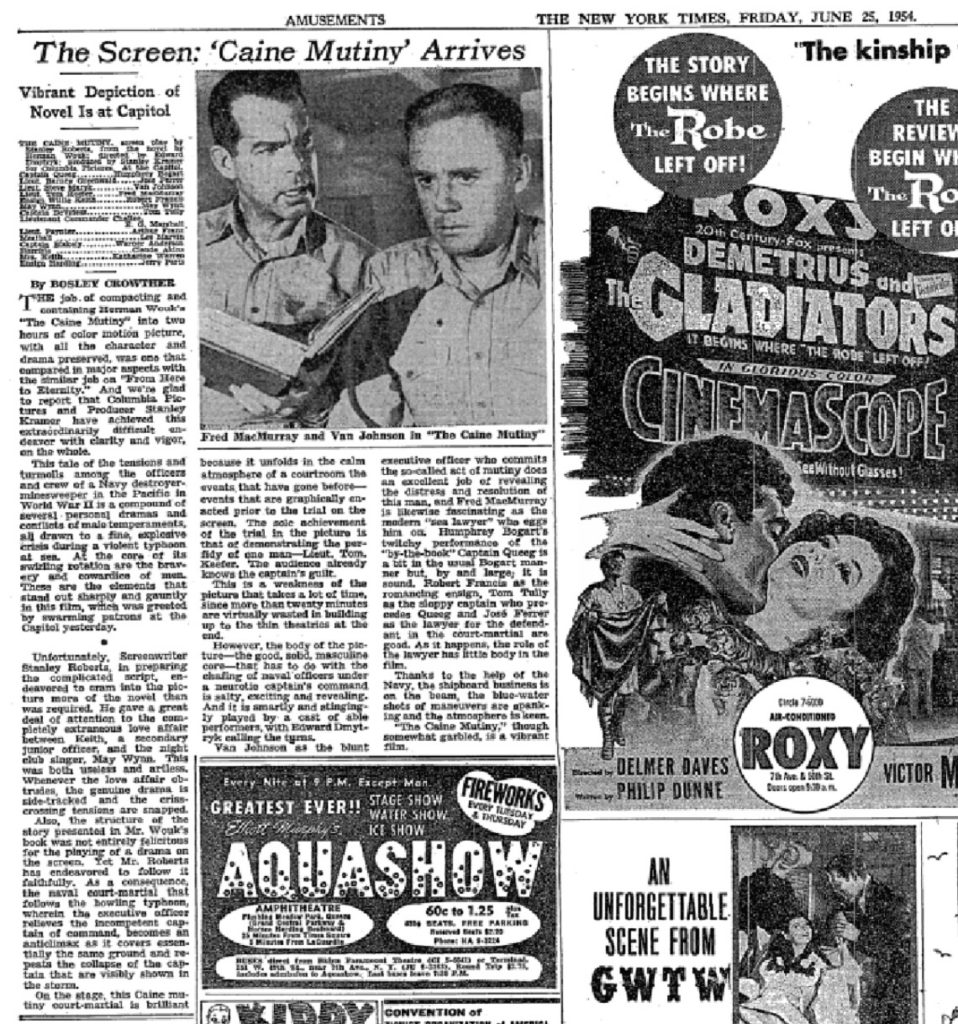
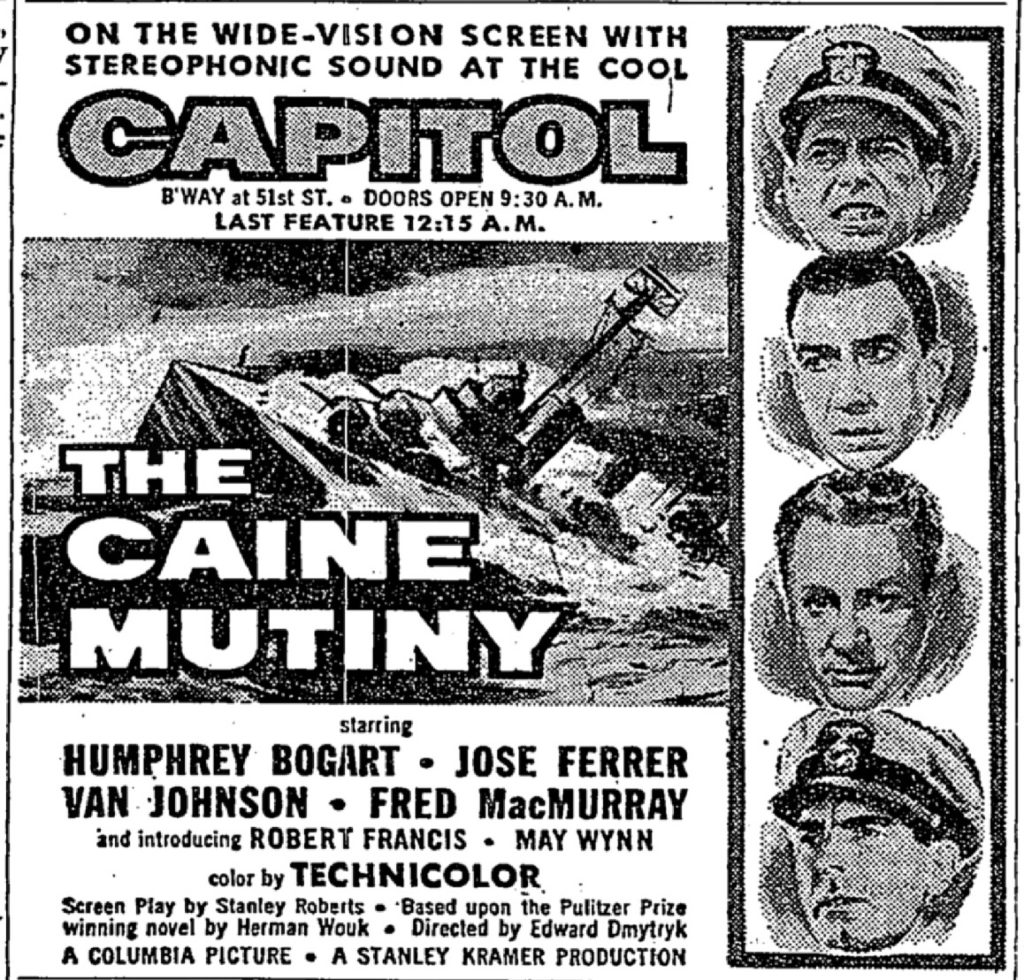
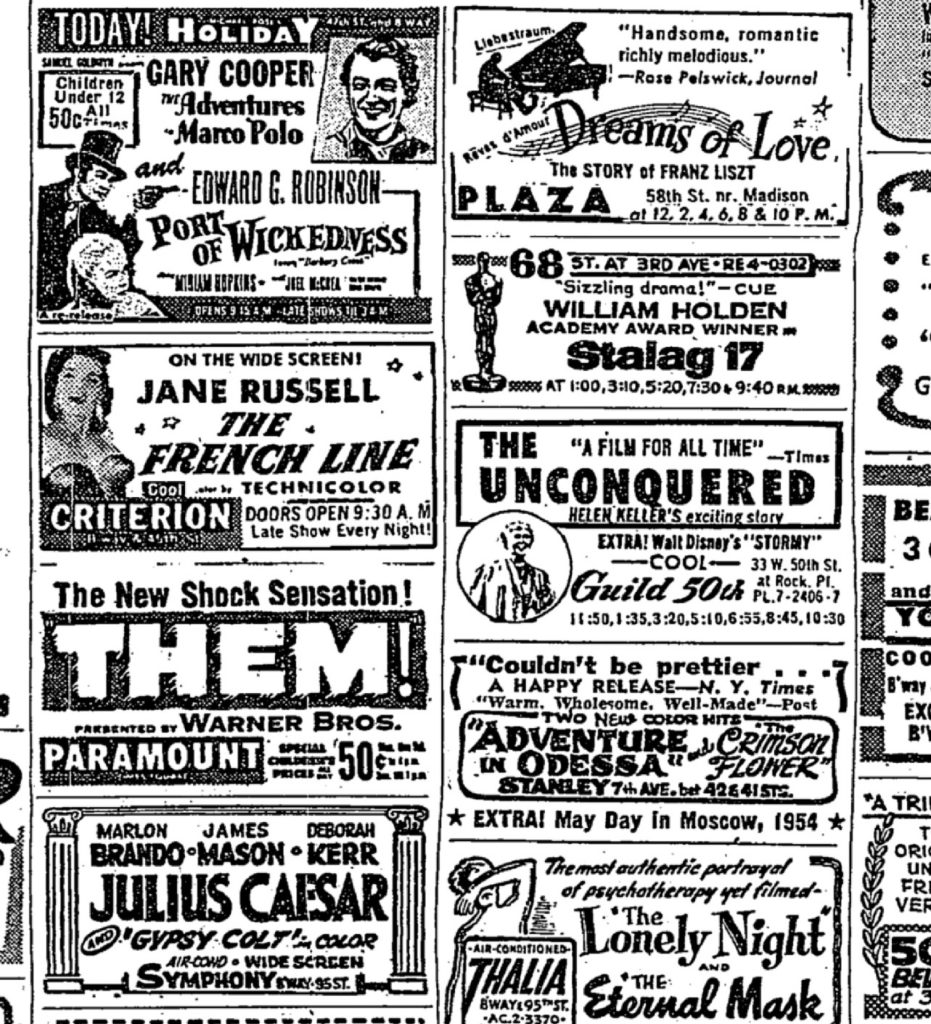
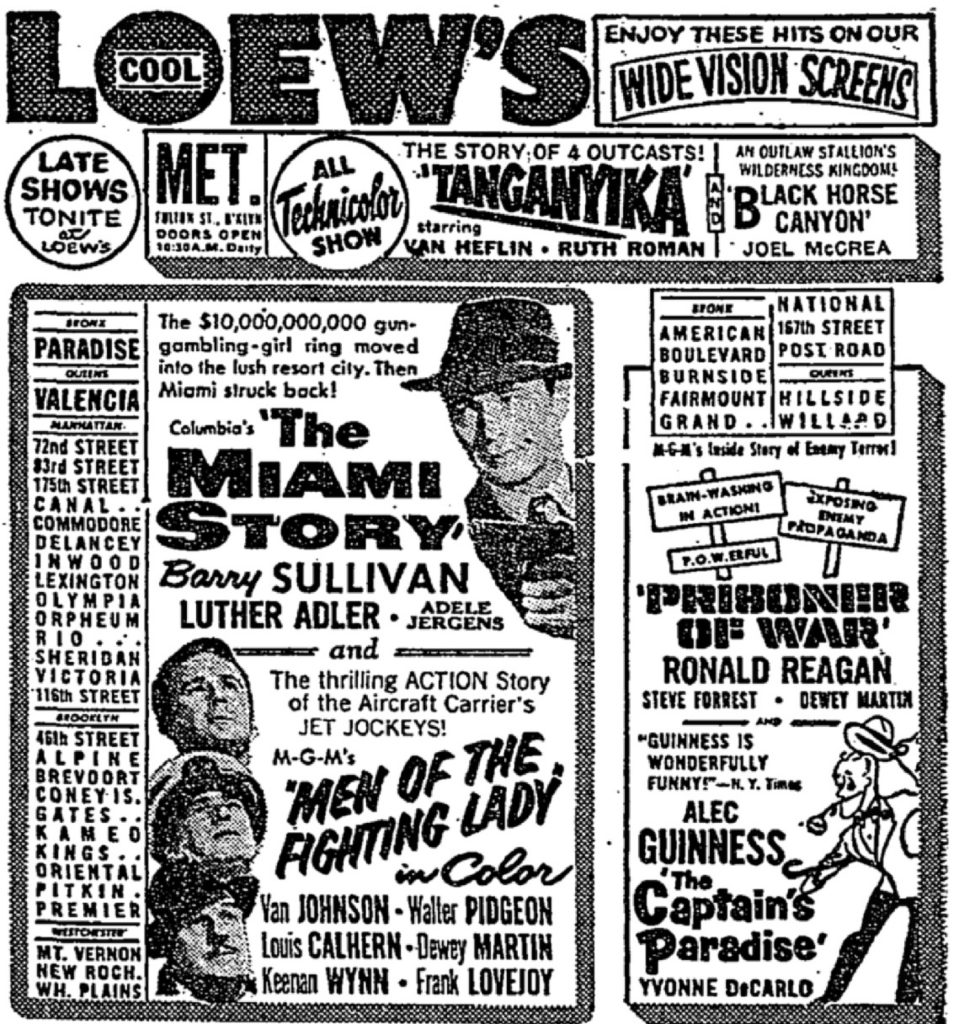
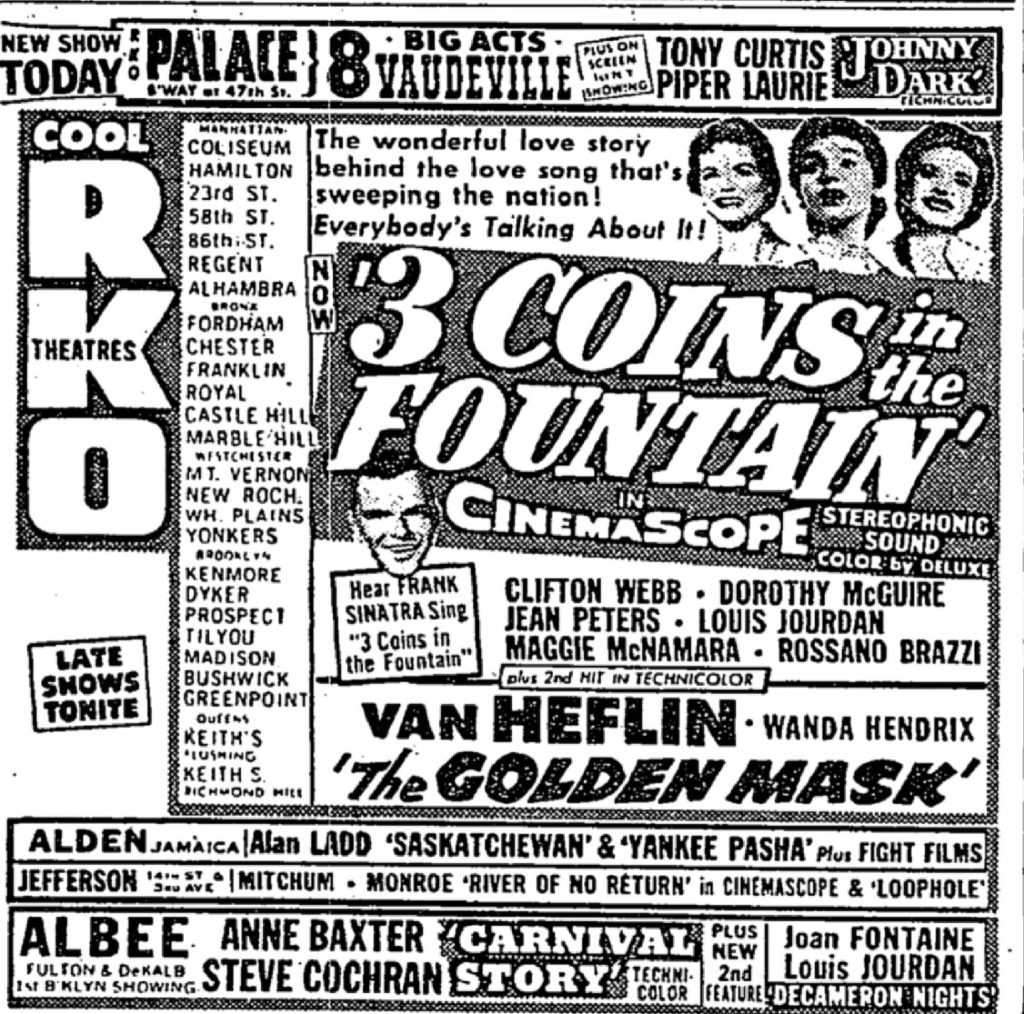
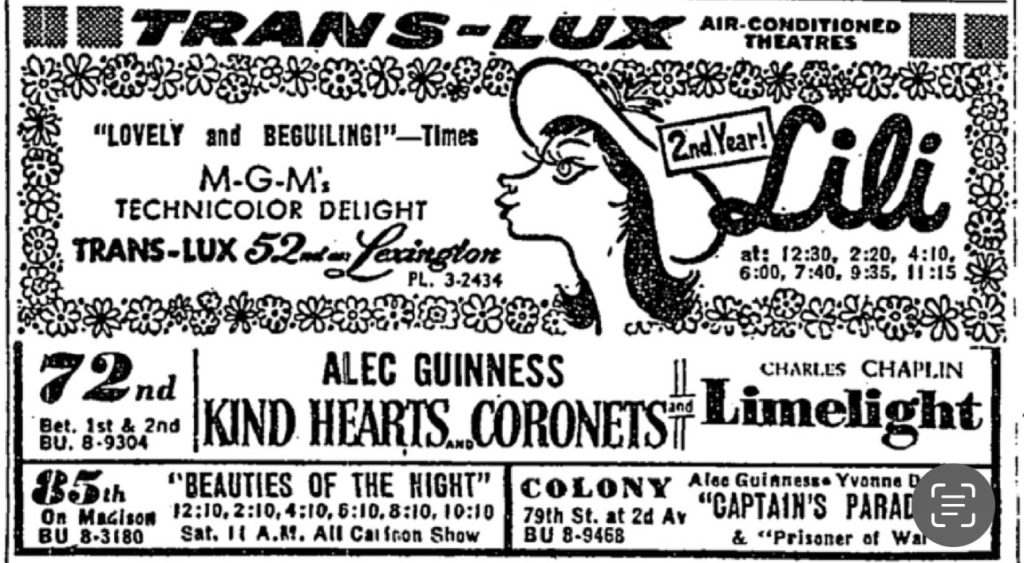
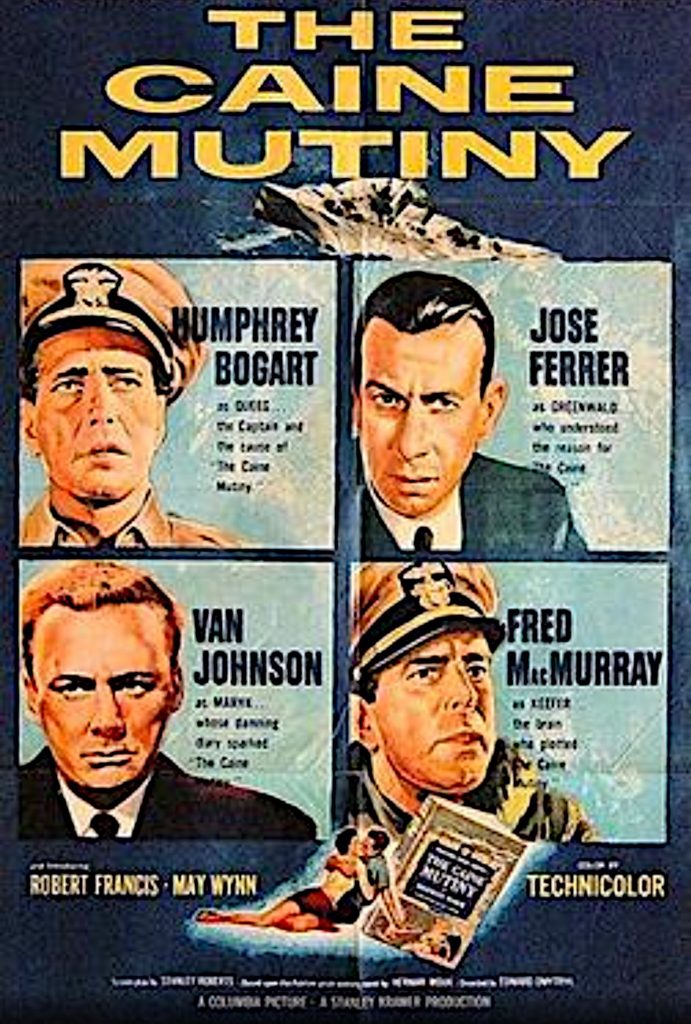
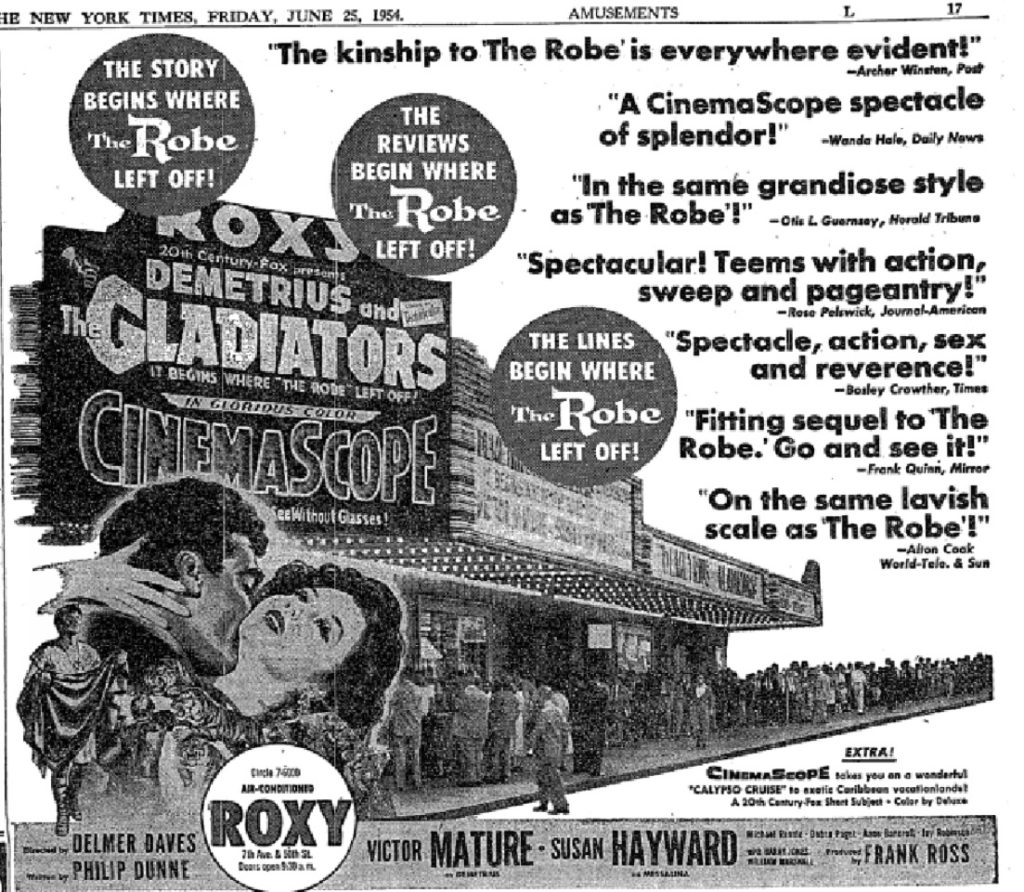
A Month Old (Allie Sherlock, Fionn Wheelan)
Allie Sherlock, age 18, is apparently Dublin based. (Was this video shot on Grafton Street?) Fionn Wheelan is 12 years old.
Down To The Wire
According to The Ankler’s Peter Kiefer, a jolting text message was sent last night to several writers from their agents.
It said that producers and writers “are truly on the one yard line…no deal on Thursday night but [almost certainly] by Sunday evening, or earlier. Down to two points.”
“The text also alluded to former WGA chief negotiator David Young: “Turns out the WGA negotiating committee called David and ran everything by him…last night at 5 pm they agreed to a deal. It was David who told them to go back and ask for those other two points and ‘squeeze their nuts the same way we did the agents’. That’s what happened and that’s who’s been behind the scenes this entire time, hence why it’s taking so long.”
HE friendo: “Due to the unreasonable duration of this strike, as well as considerable collateral damage heaped upon below the line personnel and outlying businesses, the WGA is trying to come back to its membership with a full victory lap on all issues.
“I’m hearing an extension of health benefits is also a sticking point for the AMPTP… they won’t relinquish [this in order] to discourage future strikes, but the WGA is being insistent.
“The AMPTP felt they’d closed a deal in principle on Thursday night, but the WGA came back with more caveats and it’s very convenient to attribute those to the hardliner not in the room: David Young. As I’ve said before, if Young had been the lead negotiator, he most likely would have advocated staying at the table, but the Guild was hellbent on this strike.”
Seemingly Decent Reboot
…except there are two performances that push too hard.
I’m speaking of Monica Raymund (playing lead prosecutor Katherine Challee**) and Lance Reddick (as head judge Luther Blakely). You can spot the histrionics immediately, and I’m sorry but the responsibility for this falls on the shoulders of the late director William Freidkin.
Kiefer Sutherland, Jason Clarke and Jake Lacy respectively portray Lieutenant Commander Phillip Queen, Lieutenant Barney Greenwald (defense attorney) and Lieutenant Stephen Maryk (defendant).
The 109-minute Showtime pic will debut on 10.6.23.
Dmytryk’s film ran 125 minutes. The court-martial climax lasted around…what, 25 or 30 minutes including the confrontational after-party?
Freedom’s Just Another Word
…for nothin’ left to lose.
I just re-watched Memento for the first time since the fall of 2000….23 years ago. And I had the exact same reaction.
I didn’t give a flying fuck about trying to make sense of the confusing ass-backwards plot (if you want to call it a “plot”) and I will never care what actually happened for the rest of my life, but I was totally tickled by Guy Pearce‘s performance as the earnestly confused, 100%-behind-the-eightball Leonard Shelby.
I also loved Joe Pantoliano and Carrie Ann Moss‘s respective performances as Natalie and John Edward “Teddy” Gammell. And Mark Boone Junior‘s confession that his boss had told him to rent a second motel room to Pearce because he wouldn’t remember having rented the first one.
It’s the metaphor that matters — living totally in the moment (i.e., unburdened by memory or past associations of any kind) represents, if you can really let go, a kind of ecstatic cosmic freedom. Glorious and oddly hilarious.
Memento is the only Chris Nolan film that could be accused of having a sense of humor.
Lincoln Fetterman
Full credit to “@StephanieX” (is that her full name?) for creating this:
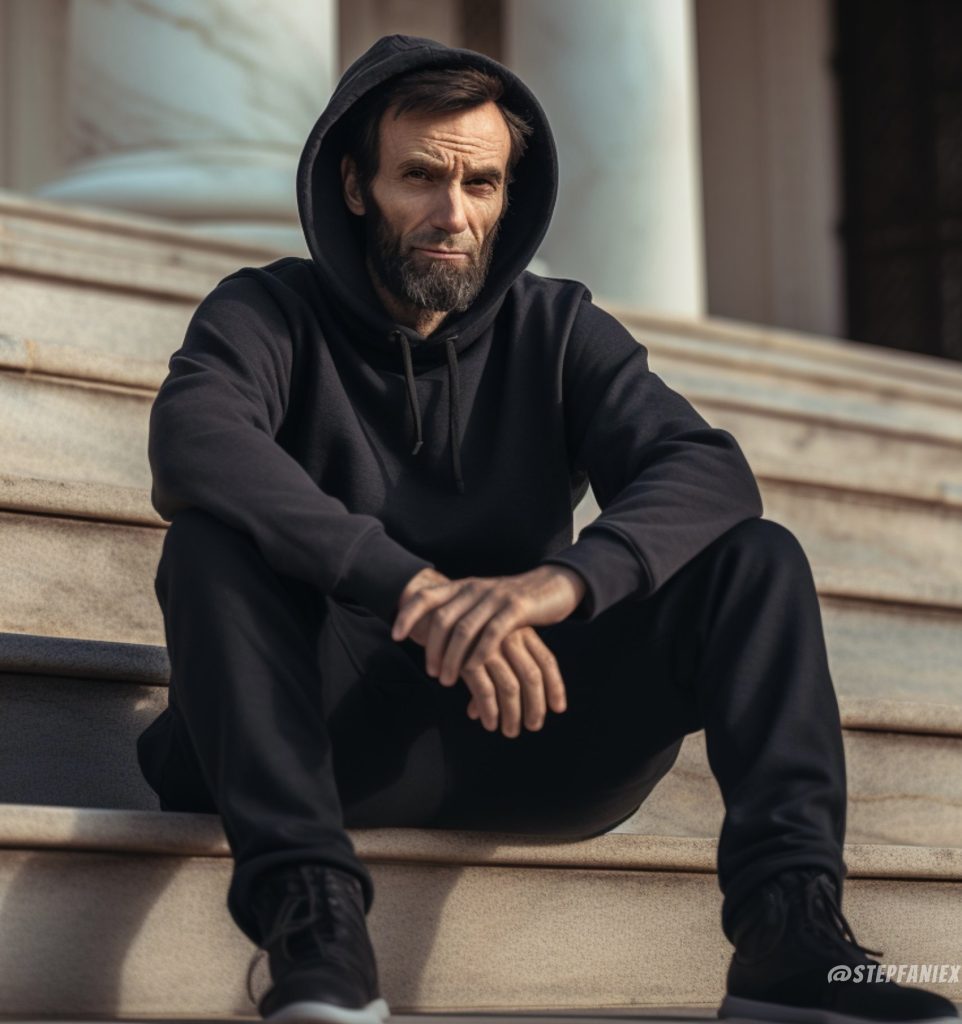
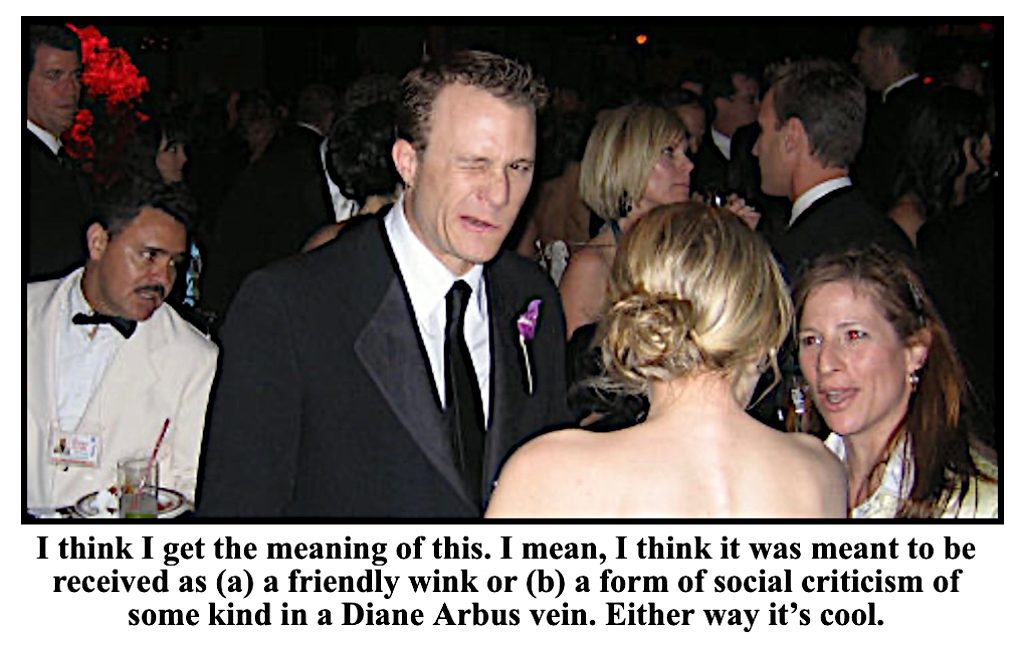

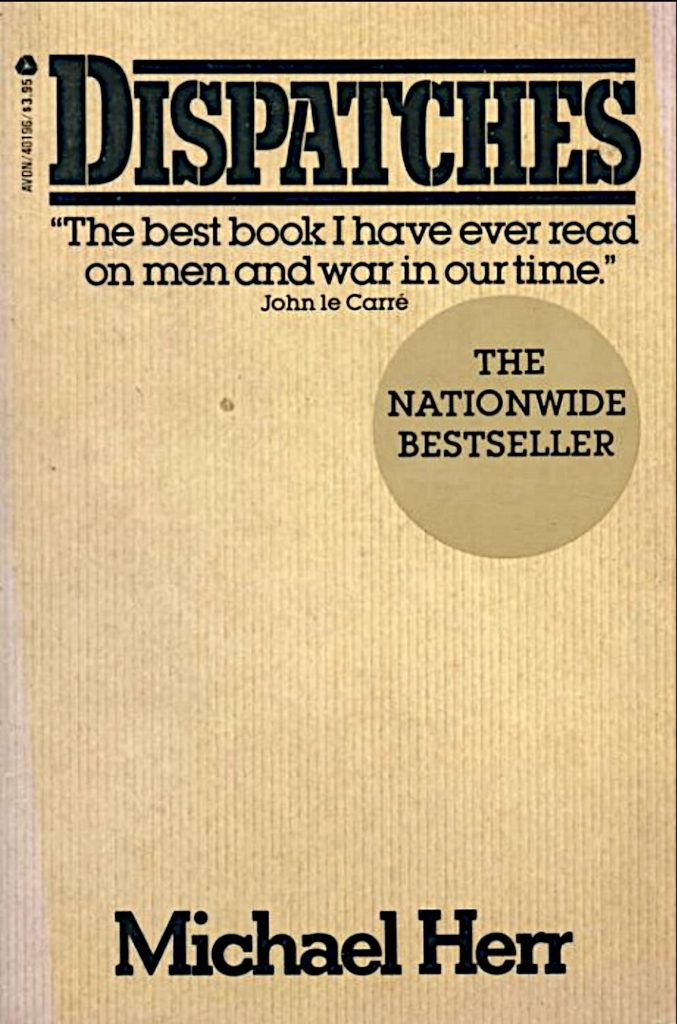
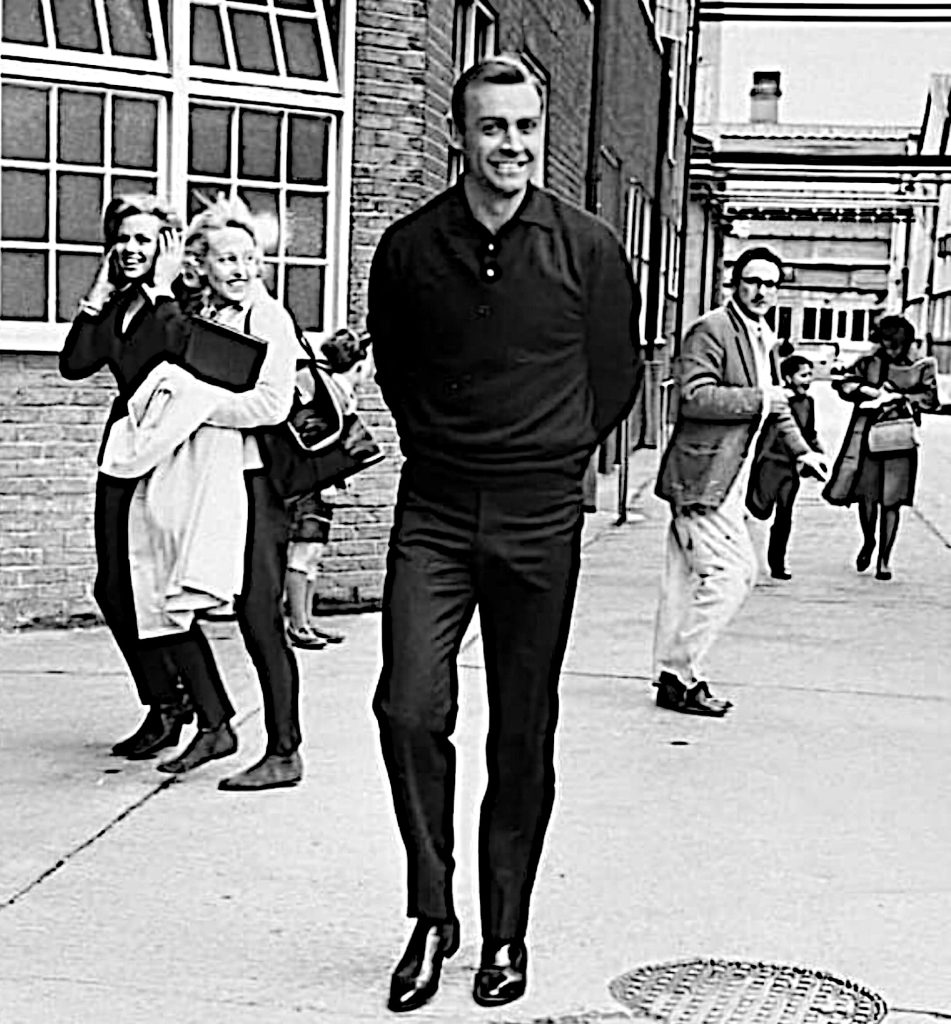
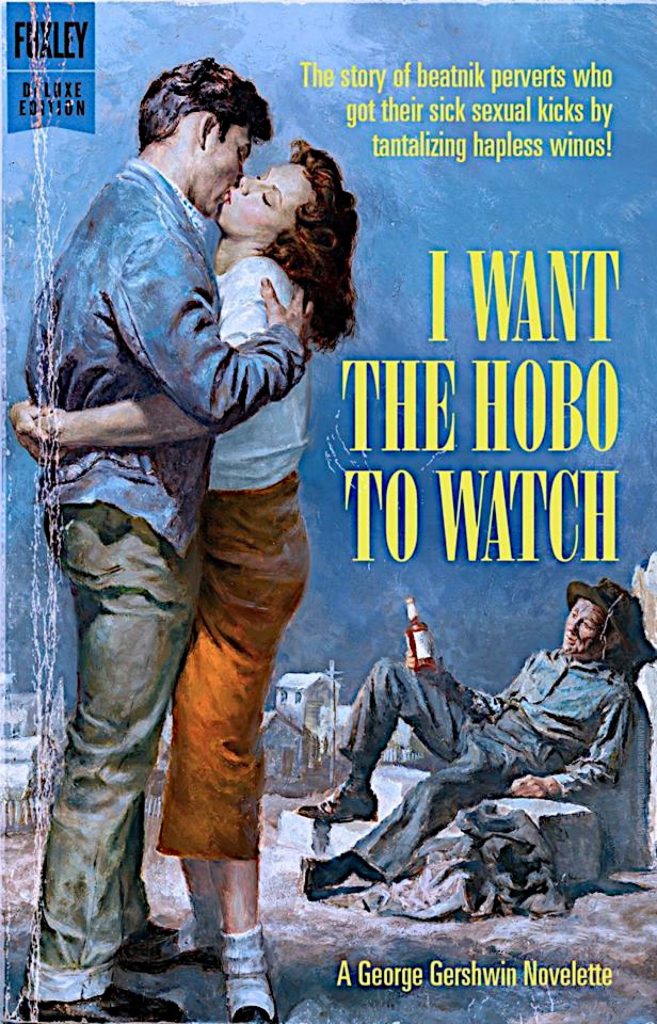
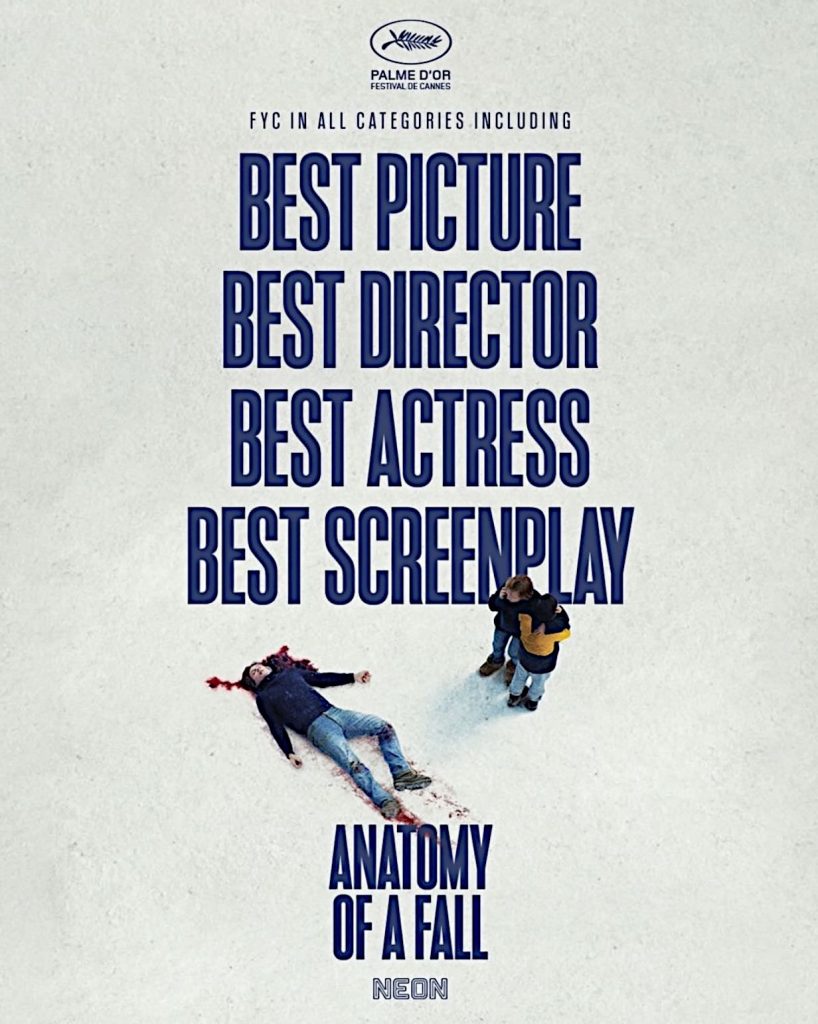


‘70s Bernie Taupin vs. Current Version
HE to Cameron Crowe: I know what Bernie Taupin used to look like. Longish hair, gentle features, sensitive eyes. Exactly like a sensitive lyricist would’ve looked in 1973.
Now he looks like someone else. Shaved head, pork pie hat, white goatee, leather jacket. Like a jazz musician from Marseilles, or the twin brother of French director Jacques Audiard. No resemblance at all to the yesteryear guy.
You and I look like older (but not too much older) versions of our youthful selves. Elton still looks like Elton, just older and heavier with artificially thick hair. Bernie looks like someone else entirely.
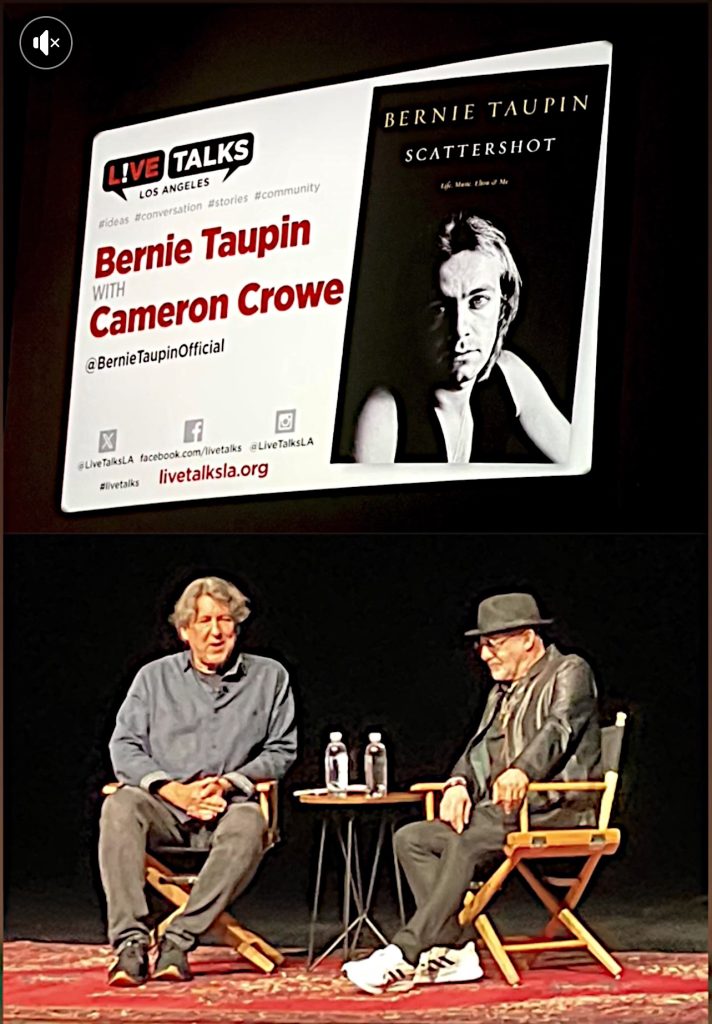
Peakfellas
Snapped in ‘62: Gregory Peck was peaking with To Kill a Mockingbird. Cary Grant had peaked with North by Northwest three years earlier, but he was on the gradual downslide and would retire four years hence. The stout, moustachioed, Ugly American-ized Marlon Brando had peaked in the early to mid ‘50s but would resurge in the early ‘70s. Rock Hudson was peaking with Lover Come Back but…okay, he had Seconds to look forward to, I suppose.
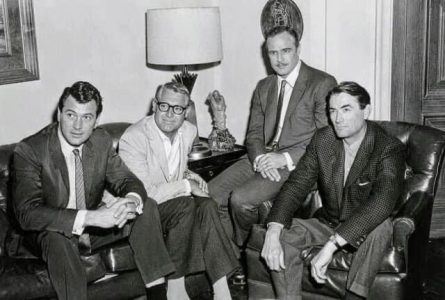
Continuing Adventures of A Smooth Operator
Us Weekly ‘s Yana Grebenyuk is reporting that Pete Davidson (aka “Mr. Bone”) is doing the old in-out-in-out with Madelyn Cline. The 25-year-old Cline costarred in Rian Johnson’s Glass Onion, but I honestly don’t remember who she played or what she did or anything. Okay, I just looked it up — she played Whiskey, Dave Bautista’s girlfriend.

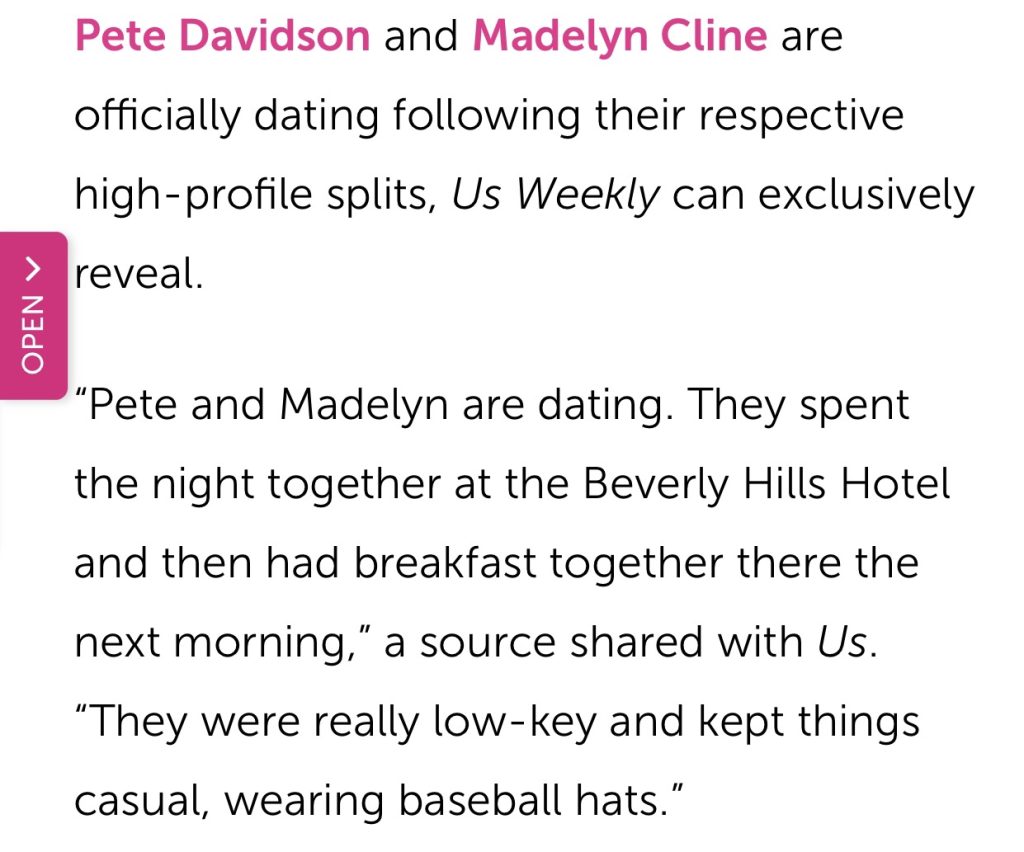
Baseball hats!
Academy-Friendly vs. New Academy Kidz-Friendly
Yesterday N.Y. Times industry reporter Kyle Buchanan declared that The Pot-Au-Feu (aka The Taste of Things) is “absolutely” competitive above and beyond the Best Int’l Feature category. He believes this because Tran Anh Hung’s French culinary romance is “incredibly Academy friendly.”
Most of us know what “Academy-friendly” means…a film that feels confident and well-crafted in a classic, well-settled sense…one that delivers emotional comfort by way of a well-threaded conveyance of commonly held truths and values…a film that resides within familiar boundaries and doesn’t push the envelope too much. In short, a film that appeals to over-45 sophistos.
But of course, there’s another kind of Academy-friendly film these days — one that appeals to the under-45 crowd by placing significant value upon identity politics (i.e., celebrating female, LGBTQ and non-white actors and filmmakers) above everything else…a film that caters to the tastes and views of the New Academy Kidz.
So which of the currently hot contenders and performances are traditionally Academy friendly vs. NAK-friendly? And which among these exude an intimidation factor — a film or performance that may be very good on a quality-level, but which voters will feel obliged to support regardless because they don’t want anyone to think they lack of a social conscience or, God forbid, may be harboring a certain undercurrent of racism.
Abbreviation-wise, the three categories are (a) AF, (b) NAK and (c) IF (intimidation factor). HE has also created a fourth category — FI or forget it.
